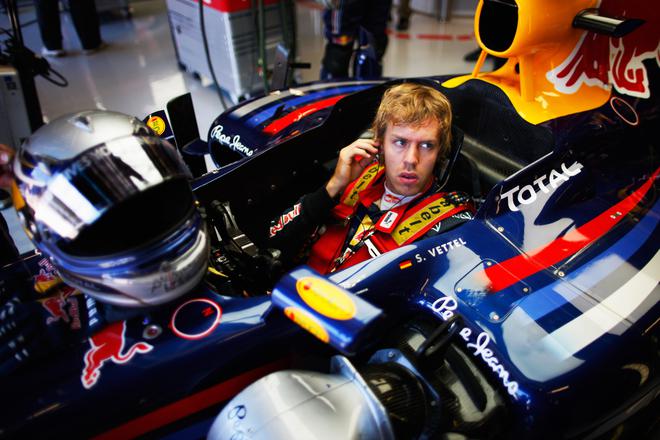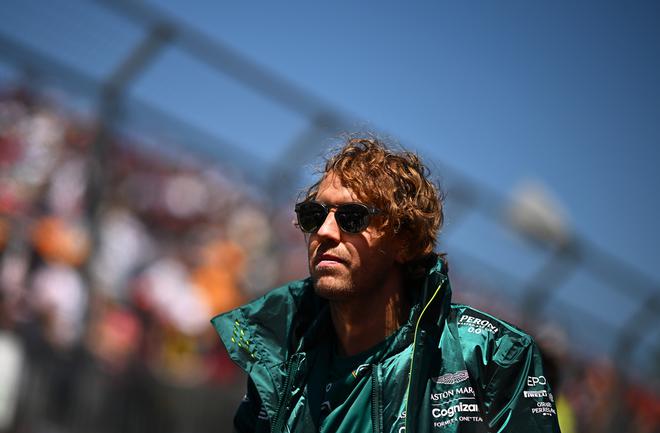

Last Thursday, ahead of the Hungarian Grand Prix, social media was abuzz after Sebastian Vettel opened an Instagram account.
The four-time world champion was the last holdout on the paddock, the only Formula One driver without a social media account. So, when the reticent Vettel created one, there was curiosity about what was to come next.
Minutes later, in a lengthy video message, the 35-year-old called time on his illustrious career. Saying he would walk away at the end of the season, Vettel offered a rare sneak peek into his life, saying his priority now was his family.
The German lineage
Michael Schumacher’s dominance had opened the door for a plethora of German drivers, but nobody came close to taking the great man’s mantle until a fresh-faced Vettel burst onto the scene in the mid-noughties.
A point-scoring debut with BMW Sauber, as a stand-in for Robert Kubica at the 2007 US GP, led to Red Bull giving him the Toro Rosso seat.
A sensational performance at the Italian GP in 2008, his first full season in F1, offered a glimpse of what he was about. On a wet weekend in a back-of-the-field car, he controlled a mixed-conditions race from pole to take the chequered flag.
Schumi comparison
With a German wunderkind mastering the rain just two years after Schumacher’s first retirement, it was no surprise that the ‘Baby Schumi’ moniker was foisted on him. It was a testament to his talent and mentality that he was not fazed; indeed, he revelled in being compared to his childhood hero.
Once David Coulthard retired from his Red Bull seat in 2008, it was a no-brainer that Vettel would progress to the senior team. In 2009 he justified that promotion by finishing second in the championship.
Quickly he established supremacy over the experienced Mark Webber; it would form the basis of a frosty relationship. In Vettel, Red Bull had a driver it had guided through the junior ranks. The German was protected by Dr. Helmut Marko, who called the shots as an advisor to the team.
This security helped Vettel demolish the record books, winning four consecutive titles (2010-13) — the first, at 23, made him the youngest world champion.
The 2011 season illustrated Vettel’s unique talents. It was the era of using exhaust gases to generate more rear downforce. Design genius Adrian Newey exploited the concept’s potential to produce one of the most dominant cars in the sport’s history. But it needed Vettel to harness it.
The car demanded a counter-intuitive driving style that Vettel adapted to by pressing on the throttle early into the corner when the rear was nervous, using the exhaust gases to provide stability. This was a style that Webber just couldn’t get his head around, winning only one race to Vettel’s 11 in the same car.
After a close-fought title win in 2012, Vettel was at his dominant best in 2013, clinching 13 races, tying Schumacher’s record for the most wins in a season. He also won nine in a row, a record all his own.
But even as he broke these records, Vettel’s achievements came with asterisks and a certain contempt because he had a dominant car; rivals Fernando Alonso and Lewis Hamilton didn’t and felt in similar machinery they would be winning too.
There were also disparaging comments about his clumsy wheel-to-wheel driving, with some saying he knew only to win from pole. However, such criticisms overlook the fact that when he had a car of his liking, he was mighty in qualifying and an expert at converting pole to victory.
While he did benefit from a good car, people tend to overlook his tremendous work ethic in the pursuit of excellence. When Pirelli joined the sport in 2011, he went the extra mile to understand the tyre and benefited from it.
Student of the game
In fact, he is a great student of the sport, with a love for its history and traditions, which meant he had an appreciation of what he was achieving. A few years ago, on F1’s YouTube channel, he was the only driver who could name all the champions dating back to 1950.
His cheeky sense of humour and fondness for British pop culture and dry wit made him a popular figure off the track, but he could be ruthless on it. Perhaps the most striking instance came in 2013, when he disobeyed a team order and overtook Webber — seemingly payback for Webber’s aggression in the final race of 2012.
After the US Grand Prix in 2013, Vettel told his team on radio to enjoy the moment because it wouldn’t last forever.
Dominance ends
The words proved prophetic. In 2014, F1 introduced new rules, kickstarting the hybrid era, and Red Bull’s dominance ended. Vettel also struggled against new teammate Daniel Ricciardo, who outshone the four-time reigning champion.
Just as he was having his first real test, Vettel saw an opening at Ferrari — Alonso fell out with the bosses — and grabbed it. He had always wanted to follow in the footsteps of his idol Schumacher and win in the iconic scarlet car.
Vettel’s time at Ferrari was disappointing, even with two runner-up finishes; Mercedes’ dominance proved unbreakable.
It wasn’t until 2017 that Ferrari had a championship-contending car, but the team’s race operations left a lot to be desired. Vettel often had to overrule team strategies and never got the support he enjoyed at Red Bull. It did not help that the people who recruited him were shown the door before he even started his Ferrari stint.
The pressure to deliver for Ferrari got to him and mistakes slowly started creeping into his game. Indeed, errors — at Singapore and Baku in 2017, at the German and Italian GPs in 2018 — significantly hurt his title ambitions in those two seasons.
Ferrari blues
In 2017, he had led the standings after 12 rounds but Mercedes and Hamilton came back strongly after the summer break to seal the title. Ferrari was even more competitive through 2018, but Vettel couldn’t manage the consistency to capitalise.
The forlorn image of Vettel near his stricken car in Hockenheim (2018) has come to define his Ferrari spell. In 2019, another upstart, this time Charles Leclerc, blew him away. It was enough to convince Ferrari to dump him after the 2020 season.
Although he managed to work his way to a two-year deal at Aston Martin Racing, the team’s lack of competitiveness and Vettel’s patchy driving have contributed to a mediocre stint, far from the heights he once enjoyed.
While his racing standards have dropped, Vettel has assumed a bigger role off the track, voicing his views on such significant issues as diversity, inclusion and the environment.
He has been supportive of Hamilton’s efforts to take the knee before races and has become a vocal ally of the LGBTQ+ community, frequently wearing Pride colours during the race weekend in countries that are hostile to these issues.
Vettel has also championed organic farming and bee conservation. Earlier this year, he joined the BBC Question Time programme where he spoke about the need for investing more in renewable energy.
Remarkably candid
When asked if he was being hypocritical, as part of a sport that burns fuel and criss-crosses continents, leaving a huge carbon footprint, Vettel candidly agreed and spoke about the moral dilemma.
While the German’s racing success was frontloaded and his late years have been underwhelming, it would be unfair to minimise his achievements. That’s largely recency bias at work.
Although not everyone will place him in the top echelon of drivers, alongside Fangio, Senna, Schumacher and Hamilton, Vettel’s stats are beyond reproach. When the dust settles in Abu Dhabi later this year, he will bow out with the third-most Grand Prix wins and the joint-third-most championship titles.
That is a legacy he can be justifiably proud of.







